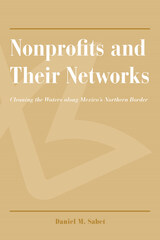113 books about Water and 3
start with N
113 books about Water and 3
113 books about Water
3 start with N start with N
3 start with N start with N

Naturalizing Inequality
Water, Race, and Biopolitics in South Africa
Michela Marcatelli
University of Arizona Press, 2021
More than twenty-five years after the end of apartheid, water access remains a striking reminder of racial inequality in South Africa. This book compellingly argues that in the post-apartheid period inequality has not only been continuously reproduced but also legitimized.
Michela Marcatelli unravels this inequality paradox through an ethnography of water in a rural region of the country. The Waterberg Plateau is a space where agriculture, conservation, and extraction coexist and intersect. Marcatelli examines the connections between neoliberalism, race, and the environment by showing that racialized property relations around water and land are still recognized and protected by the post-apartheid state to sustain green growth. She argues that the government depicts growth as the best, if not only, solution to inequality. While white landowners maintain access to water, however, black ex-farmworkers are dispossessed once again of this essential-to-life resource.
If the promise of growth serves to normalize inequality, the call to save nature has the effect of naturalizing it even further.
Michela Marcatelli unravels this inequality paradox through an ethnography of water in a rural region of the country. The Waterberg Plateau is a space where agriculture, conservation, and extraction coexist and intersect. Marcatelli examines the connections between neoliberalism, race, and the environment by showing that racialized property relations around water and land are still recognized and protected by the post-apartheid state to sustain green growth. She argues that the government depicts growth as the best, if not only, solution to inequality. While white landowners maintain access to water, however, black ex-farmworkers are dispossessed once again of this essential-to-life resource.
If the promise of growth serves to normalize inequality, the call to save nature has the effect of naturalizing it even further.
[more]

Never Curse the Rain
A Farm Boy’s Reflections on Water
Jerry Apps
Wisconsin Historical Society Press, 2017
Growing up on the family farm, Jerry Apps learned from a young age that water was precious. The farm had no running water, a windmill pumped drinking water for the small herd of cattle, and Jerry and his brothers hauled bucket after bucket of water for the family’s use. A weekly bath was considered sufficient. And when it rained, it was cause for celebration. Indeed, if ever the Apps boys complained about a rainy day spoiling their plans, their father admonished, "Never curse the rain," for the family’s very livelihood depended upon it.
In Never Curse the Rain, Jerry shares his memories of water, from its importance to his family’s crops and cattle to its many recreational uses—fishing trips, canoe journeys, and the simple pleasures of an afternoon spent dreaming in the haymow as rain patters on the barn roof. Water is still a touchstone in Jerry’s life, and he explores the ways he’s found it helpful in soothing a troubled mind or releasing creativity. He also discusses his concerns about the future of water and ensuring we always have enough. For, as Jerry writes, "Water is one of the most precious things on this planet, necessary for all life, and we must do everything we can to protect it."
In Never Curse the Rain, Jerry shares his memories of water, from its importance to his family’s crops and cattle to its many recreational uses—fishing trips, canoe journeys, and the simple pleasures of an afternoon spent dreaming in the haymow as rain patters on the barn roof. Water is still a touchstone in Jerry’s life, and he explores the ways he’s found it helpful in soothing a troubled mind or releasing creativity. He also discusses his concerns about the future of water and ensuring we always have enough. For, as Jerry writes, "Water is one of the most precious things on this planet, necessary for all life, and we must do everything we can to protect it."
[more]

Nonprofits and Their Networks
Cleaning the Waters along Mexico’s Northern Border
Daniel M. Sabet
University of Arizona Press, 2008
On the border of the United States and Mexico, few policy issues face such acute challenges as those related to water. Border cities face an uncertain future water supply, low-income neighborhoods often lack water and sewer services, and water contamination poses a risk to the health of residents and the environment. Responses by government agencies on both sides of the border have been insufficient. Increasing economic development has mainly resulted in increasing problems. These limitations of government and market forces suggest that nonprofit organizations—the so-called “third sector”—might play an important role in meeting the growing challenges in the region.
Finding that these organizations do have a positive impact, Daniel Sabet seeks to understand how autonomous nonprofit organizations have emerged and developed along the border. He employs data from more than 250 interviews with members of civil society organizations and public officials, surveys of neighborhood association leaders, observations at public meetings, and many secondary sources. His research compares the experiences of third-sector organizations in four prominent Mexican border cities: Tijuana, Nogales, Ciudad Juárez, and Nuevo Laredo.
Sabet finds that political change is a necessary precondition for the establishment of an independent third sector. The demise of one-party rule in Mexico has given nonprofit organizations greater opportunities to flourish, he finds, but persistent informal rules still obstruct their emergence and development. Sabet concludes that the success of the third sector will depend on the organizations’ networks. He examines organizational ties to three key groups—U.S. nonprofits, the business community, and government-created methods for public participation—and evaluates the importance of these connections for the future.
Finding that these organizations do have a positive impact, Daniel Sabet seeks to understand how autonomous nonprofit organizations have emerged and developed along the border. He employs data from more than 250 interviews with members of civil society organizations and public officials, surveys of neighborhood association leaders, observations at public meetings, and many secondary sources. His research compares the experiences of third-sector organizations in four prominent Mexican border cities: Tijuana, Nogales, Ciudad Juárez, and Nuevo Laredo.
Sabet finds that political change is a necessary precondition for the establishment of an independent third sector. The demise of one-party rule in Mexico has given nonprofit organizations greater opportunities to flourish, he finds, but persistent informal rules still obstruct their emergence and development. Sabet concludes that the success of the third sector will depend on the organizations’ networks. He examines organizational ties to three key groups—U.S. nonprofits, the business community, and government-created methods for public participation—and evaluates the importance of these connections for the future.
[more]
READERS
Browse our collection.
PUBLISHERS
See BiblioVault's publisher services.
STUDENT SERVICES
Files for college accessibility offices.
UChicago Accessibility Resources
home | accessibility | search | about | contact us
BiblioVault ® 2001 - 2024
The University of Chicago Press









